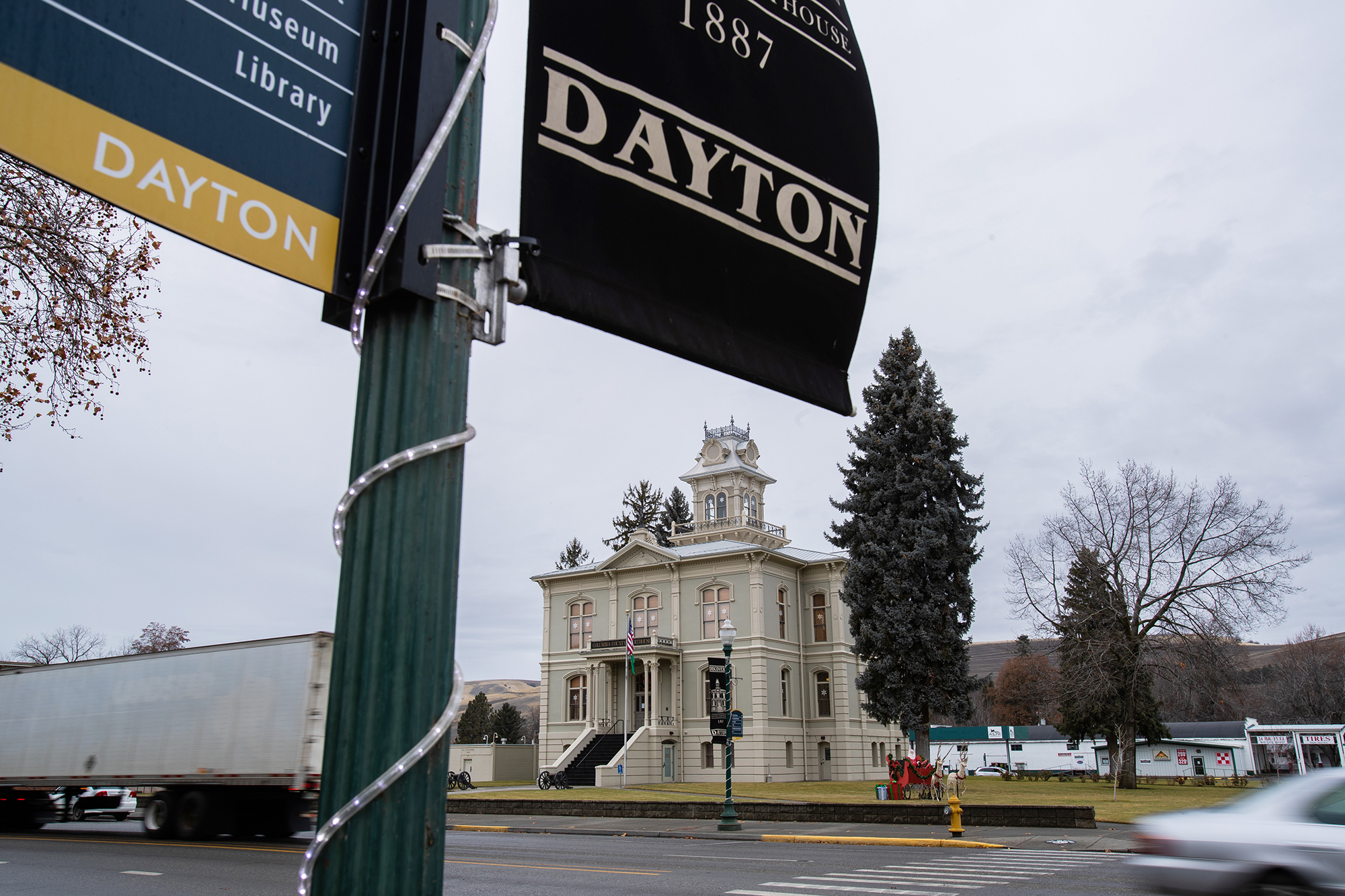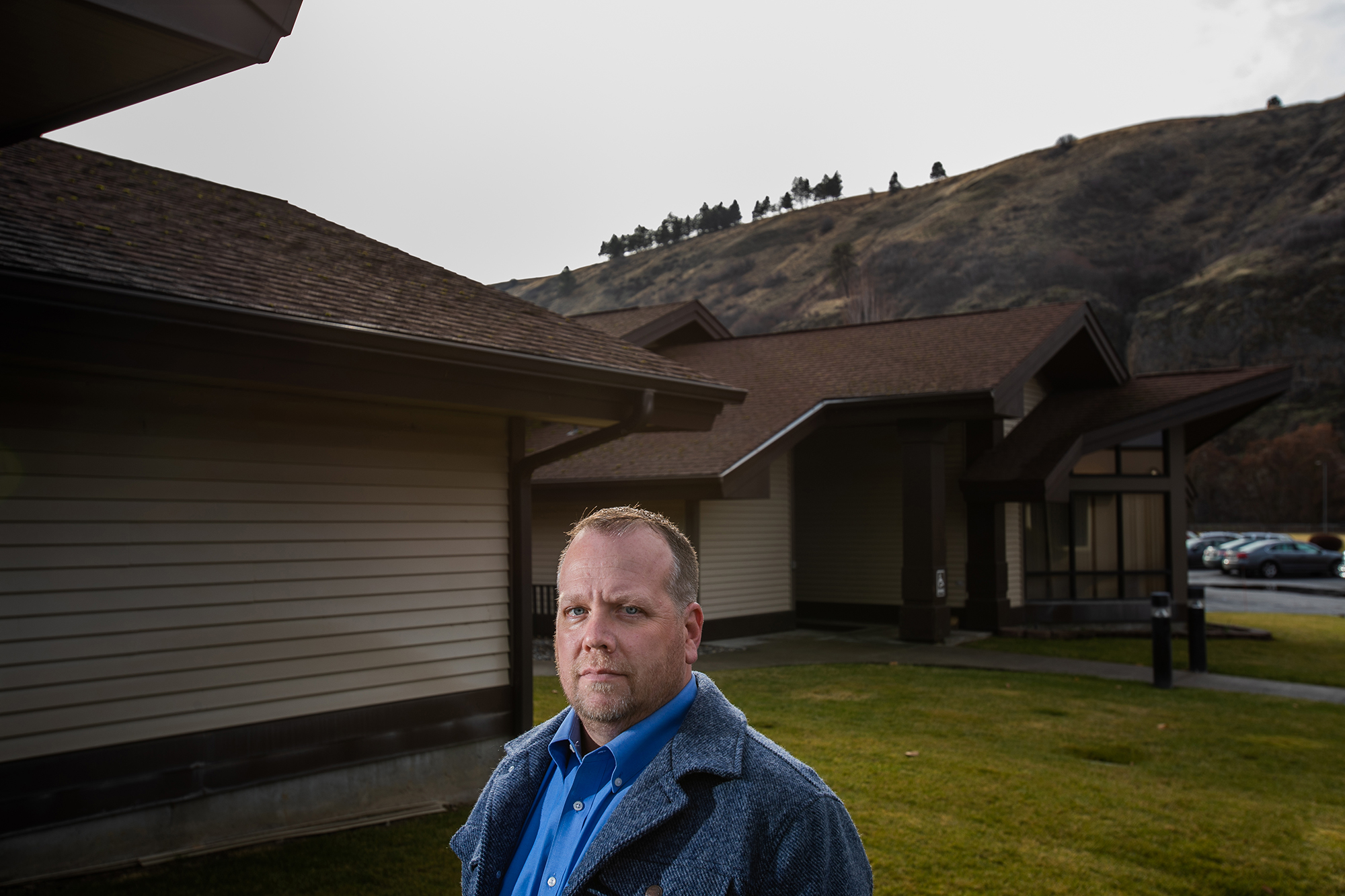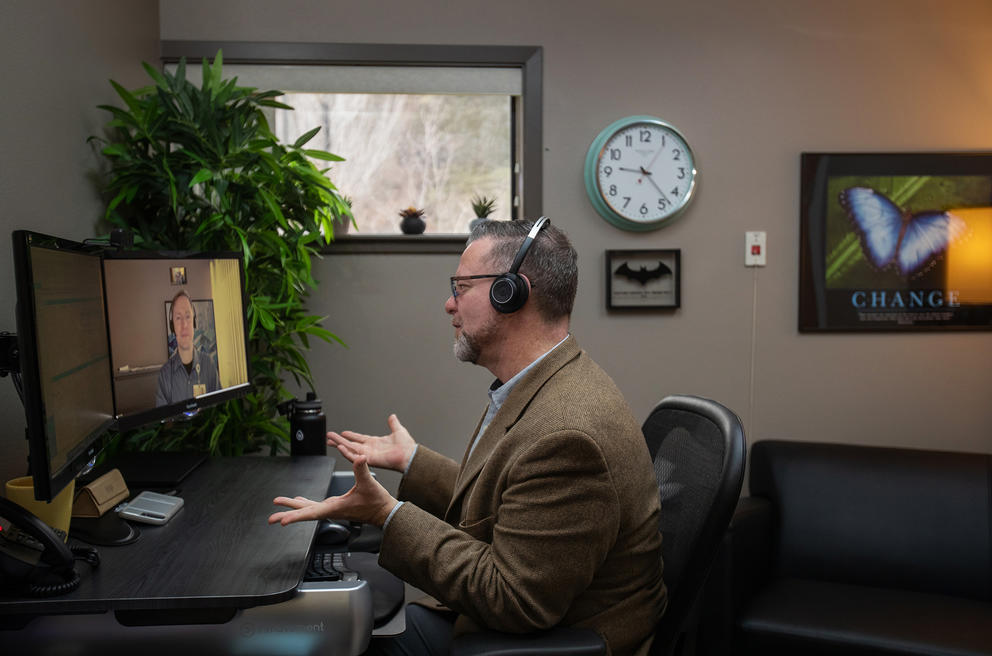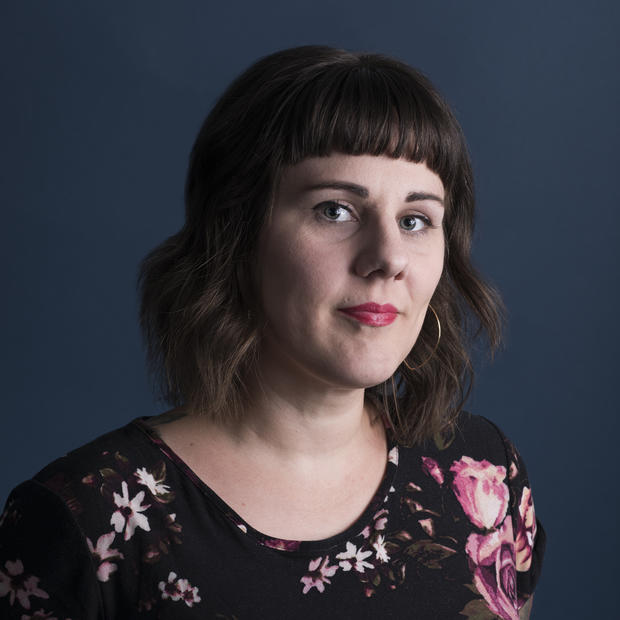Last July, McGuire found an opportunity to work with the University of Washington’s psychiatry program and its Advancing Integrated Mental Health Center (AIMS). The center’s primary focus is creating collaborative care models between primary care providers and their mental health care counterparts.
Dayton’s model weaves behavioral health care directly into primary care appointments. In Dayton, a mental health screening that indicates the patient would benefit from specialty care prompts a referral right away.
McGuire says the program extends beyond the AIMS model, because the UW psychiatrists not only support the medical staff, but also work directly with patients.
“They were willing to think outside the box for us,” he says. “I don’t think they really have a name for what they’re doing here yet.”
Rural Washington has struggled with behavioral health care solutions, with most citing problems in recruitment, retention and the high financial burden of providing specialty services. These hospital districts must be creative in building programs robust enough to meet basic mental health care needs, especially as Gov. Jay Inslee prepares to fully integrate behavioral health in the new year.
The 2019-2021 state operating budget provides $350.5 million to improve the mental health system, with over $35 million dedicated to community services and beds. Close to $120 million in the capital-construction budget was set aside for community-based beds to keep patients in their communities instead of being sent to Western or Eastern State Hospital.
Two bills making their way through the state Legislature would further change telemedicine for rural communities. Currently in committee is Senate Bill 5385, which seeks to pay out telehealth services at the same rate as in-person care. Senate Bill 5387, which took effect last July, allows the remote telehealth physician to access the patient’s local health records.
For now, each district is expected to find mental health solutions that will work best for them with the resources they have.

“I think there’s 14 rural hospitals in the state that are operating in the red, year after year, working in their communities,” McGuire says. “We’re safety net organizations for our communities. We don’t turn people away.”
Rural communities are taking a variety of approaches toward mental health. Some, like Three Rivers Hospital in Brewster, provide crisis services only in the emergency room through the county health department. Newport Hospital, an hour north of Spokane, has a visiting psychiatrist once or twice a month. Cascade Medical in Leavenworth is looking at using pharmacists for more specialized prescribing assistance. Many towns have started building their mental health programs only within the past two years, starting with a few social workers, a dedicated nurse or a clinical psychologist.
But even in rural hospital districts with existing behavioral health care, psychiatrists are uncommon. Those services are usually provided by monthly visits from a visiting psychiatrist or, in more recent years, utilizing telemedicine services with psychiatrists in other cities using video conferencing.
Patients in Dayton do just that. They have access to top-tier psychiatric services from UW using Zoom, an encrypted video conferencing platform that meets federal HIPAA privacy regulations.
“You’ve got some of the best psychiatrists in the nation working in guiding the care of our patients … which is really an amazing overlap,” McGuire says.
Leading the charge is Dr. Matt Iles-Shih, an adult psychiatry and addiction specialist from the University of Washington’s Medical Center. His team initially started working in outpatient care, but this fall they rolled out inpatient services to the hospital with two additional attending psychiatrists who dedicate two hours a day.
Iles-Shih does one-on-one telemedicine for every new patient’s first appointment to start them on their course of treatment, prescribing psychotropic medication as needed or managing their current doses. About three months later, the patients will have a follow-up. If they have ongoing issues that need more treatment, repeat telehealth appointments can be made.
He also works directly with the doctors and social workers, providing curbside consultations to answer questions and provide clarification. He says this model not only benefits the patients, but allows the doctors to grow in their knowledge as well, strengthening the team across the board.
“Just through the process of clinical support that we’re doing through the program, there’s an upscaling and a sense that the PCP [primary care physician], she’s just absorbing a lot and actually changing their practice,” Iles-Shih says. “It’s not like you’re just reliant on someone else in another city, but this is an opportunity to really build up your own skills and capacities as an individual clinician.”
For outpatient needs, he communicates directly with one of Columbia County’s two social workers, Wayne Pollard and Tasha Willoughby.

On Thursday mornings, Iles-Shih video conferences with Pollard about four to eight patients. Iles-Shih will enter notes into the shared electronic database, which the patient's primary doctors can access during regular appointments.
Physicians at Columbia County screen their patients every year for depression and anxiety. Those already in the newly created behavioral health program are rescreened with every visit. Depression and anxiety are the main diagnoses, but post-traumatic stress and bipolar disorders follow closely behind, Pollard says.
Pollard has been Columbia County Health System’s clinical social worker for the past two years. When he started, there was no program; McGuire created an entirely new system from the ground up.
The first half a year was clunky, Pollard says, but they saw the number of clients grow substantially. They hired their second social worker, Willoughby, to help handle the ever-growing caseload. Pollard averages about 60 clients, while Willoughby sees upwards of 90.
In crisis situations, where mental health services are needed as soon as possible, Pollard says the team can get patients in front of a UW specialist within two hours. This kind of expedited service from a psychiatrist is almost unheard of in rural health systems, he says.
There are no face-to-face psychiatrists in the area, Pollard says, and while the Tri-Cities offers such services, patients may have to wait up to a year to see one.
“It's unusual that I could see somebody last week and tell her, ‘There's a spot to see Dr. Matt next week. Let's get you in front of him,’ ” he says. “That just doesn't happen anywhere. People are blown away that they're in front of this super specialist psychiatrist within a week or two.”
Both social workers are also certified in EMDR, or eye movement desensitization and reprocessing, commonly used to treat trauma.
“We are offering a specialty care here, which is very hard to find anywhere, much less than little Dayton, to have some EMDR therapists dealing with psychological trauma [and] PTSD symptoms,” Pollard says.
The wraparound care patients receive doesn’t stop at counseling, psychiatry and primary care services. The team also includes Paul Ihle, another social worker at Columbia County. He helps clients in everything from insurance complications to housing, but Dayton has him fill a unique need with mobile outreach, which provides transportation assistance for appointments.
About half of Ihle’s clients need transportation because of their mental health, and people were missing appointments because they lacked transportation, Ihle says. So the hospital licensed him to drive a hospital van, including for referrals outside of the community. They’ve brought patients from as far away as UW Medical Center in Seattle and Moscow, Idaho.
“The state provides People for People services, but it has a very rigid criteria for qualifying,” he says. “Some people are successful meeting that criteria, but there's always circumstances that set up insurmountable hurdles to being successful and it tends to hit most profoundly the sick and the disabled and the poor.”
McGuire has also expanded into the local high school, down the road from the hospital. Pollard or Willoughby spends every Monday at the school with an open-door policy for students to talk about everything from standard “high school drama” to drug use and problems at home, Pollard says. They work with students over 13 years old. so the students can access services without needing parental permission, allowing students to drop in during school hours.

“We are surprised at the amount of kids coming to see us already,” Pollard says. “We just started at the beginning of the year and easily there’s five or six kids popping in every day, which is pretty significant with being brand new there.”
McGuire wants to make sure the services are available to Columbia County’s whole network of services, so the staff also visits the nursing home attached to the hospital. Therapy is more difficult with cognitive issues, Pollard says, but they attend monthly psychotropic meetings where Iles-Shih is present via video conferencing.
This comprehensive behavioral health care all stems from McGuire, Pollard says. He made an effort to build a program, starting at square one.
“He’s wanting to do much more than the minimum of what's required in any community. … He has a heart to see people get better,” Pollard says. “He gets the support from the board and a small community here who just want … people feeling as good as they can, instead of shoving this under the carpet like we’ve done for hundreds of years.”



